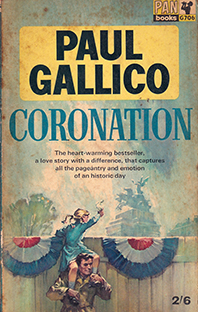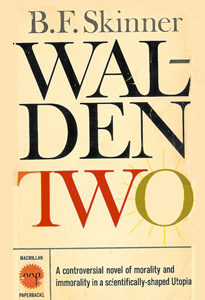- Home
- >
- Langue étrangère
- >
- Coronation
Paul Gallico
Coronation
Imagine seeing the Queen that close as she goes by in her golden carriage! The kiddies will have something to tell their kiddies, won’t they? And a drink of real champagne to go with it! Coronation Day, 2 June 1953! A humble, working-class family from Sheffield is desperate to buy train tickets to London to see the coronation, but doing so means forsaking their annual seaside holiday. After some scrimping and saving, and a family meeting in which the enthusiasm of the children overrules the reluctance of their long-suffering mother and grandmother, the Clagg family take the plunge and buy premium, champagne tickets for the big day.
Vous aimerez aussi
Adam Runaway
En Anglais – « It is 1721 and young Adam Hanaway, devastated by his father’s sudden death, leaves England to seek his fortune in Lisbon, where his uncle is a successful merchant. But almost nothing turns out as Adam planned. His family’s welcome is cool, and Adam’s rise to the top is thwarted by Bartolomeu Gomes, his uncle’s treacherous clerk. » « As Adam attempts to overcome these obstacles he is handicapped by a certain personal trait. Not, he insists, that he is a coward exactly, but he is inclined to boldly put himself in dangerous situations and then at the last minute run away from them – hence the nickname given to him by friends who had observed this failing once too often. » « While Adam’s mother and sisters wait in England for him to rescue them from poverty, Adam is preoccupied with more compelling women: the beautiful, older half-Portuguese lady Maria Beatriz Hutchinson; the spoiled, rich Gabriella Lowther; and his charming young cousin Nancy. But Adam commits a social faux pas so severe he forever ruins his chances for making a good match – yet no one dares tell him what he has done wrong! » « Adam certainly has a lot to learn. …
Il giovane holden
En italien – Sono passati più di sessant'anni da quando è stato scritto, ma continuiamo a vederlo, Holden Caufield, con quell'aria scocciata, insofferente alle ipocrisie e al conformismo, lui e tutto quello che gli è cascato addosso dal giorno in cui lasciò l'Istituto Pencey con una bocciatura in tasca e nessuna voglia di farlo sapere ai suoi. La trama è tutta qui, narrata da quella voce spiccia e senza fronzoli. Ma sono i suoi pensieri, il suo umore rabbioso, ad andare in scena. Perché è arrabbiato Holden? Poiché non lo si sa con precisione, ciascuno vi ha letto la propria rabbia, ha assunto il protagonista a « exemplum vitae », e ciò ne ha decretato l'immenso successo che dura tuttora. Torna, in una nuova traduzione di Matteo Colombo, il libro che ha sconvolto il corso della letteratura contemporanea influenzando l'immaginario collettivo e stilistico del Novecento.
Don Juan
C’est à une fête fabuleuse que nous convie l’auteur, qui réinvente le destin de Don Juan en un prodigieux roman historique, fait d’amour, de sang et de chevauchées à travers l’Europe d’avant la Révolution, toute entière acharnée à la perte du « corrupteur ».
[…]
Course poursuite tour à tour picaresque et badine, romantique et tragique.
[…]
Rencontres de moines fous, de bourreaux, de grands seigneurs assassins, de musiciens inspirés, de joueurs, de tricheurs, d’orphelines éplorées et de grandes dames criminelles. D’où ce fulgurant roman d’aventures qui évoque tout à la fois Alexandre Dumas et Casanova, mais aussi le Laclos des « Liaisons dangereuses » et les plus fantastiques des romans noirs.
Walden Two
En Anglais – Walden Two is a utopian novel written by behavioral psychologist B. F. Skinner, first published in 1948. In its time, it could have been considered science fiction, since science-based methods for altering people’s behavior did not yet exist. Such methods are now known as applied behavior analysis. Walden Two is controversial because its characters speak of a rejection of free will, including a rejection of the proposition that human behavior is controlled by a non-corporeal entity, such as a spirit or a soul. Walden Two embraces the proposition that the behavior of organisms, including humans, is determined by environmental variables, and that systematically altering environmental variables can generate a sociocultural system that very closely approximates utopia.






